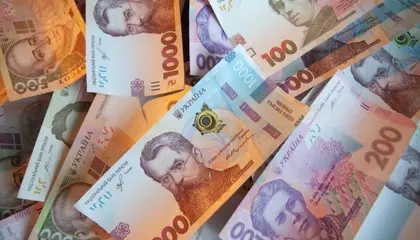Bonds: NBU changes rules of foreign investors’ funds repatriation
Last week, the NBU revised its decision on the repatriation of funds that foreign investors receive from redemptions of UAH debt. This caused new sales of bonds by foreigners to rebalance their portfolios.
The National Bank updated its decision on cross-border transfers that were adopted in May of last year. Initially, foreign investors could repatriate funds received from repayments of both principal and interest from bonds after April 1, 2023. However, following consultations with the IMF and the MoF, the NBU decided that it would be more appropriate under current conditions to grant foreign investors the right to repatriate only interest payments received since April 1.
After the decision was published, trading on the secondary market increased and reached UAH6.2bn (US$169m) last week. The most traded was paper maturing in February 2025, the main holders of which are still foreigners.
Over the past week, the portfolios of UAH government bonds held by foreigners decreased by UAH1.8bn (US$49m) to UAH53.7bn (US$1.5bn), the lowest level since the end of June 2019.
JOIN US ON TELEGRAM
Follow our coverage of the war on the @Kyivpost_official.
ICU view: Foreign investors were counting on repatriating funds received from redemptions of UAH-denominated bonds in the coming months. To be able to do so, they actively sold longer instruments and bought bills mainly with maturities in April‒May of this year. As bonds maturing in February 2025 were again the most traded, it seems that some foreign investors decided to look for alternative options for withdrawing their funds from UAH government bonds.

ICU Weekly Insight: Jan. 24, 2024 – FX-Denominated Bills Support State Budget
Bonds: Official creditors make new concessions to Ukraine
Last Friday, a group of Ukraine's official creditors agreed to extend the standstill from 1 August 2022 until 2027, and called on other creditors to do the same.
The Ministry of Finance announced on Friday the decision of the Group of Creditors of Ukraine, which includes Canada, France, Germany, Japan, the United Kingdom, and the United States, to extend the standstill clause until 2027 when the IMF program expires. Also, they decided to embark on additional treatment of debt once the situation is stabilized or at the latest by the end of the IMF program, currently schedule for 2027. In addition, the Group of Creditors urges all other official bilateral creditors to swiftly reach an agreement with Ukraine on a debt treatment that at least is as favourable.
Based on this, the Ministry of Finance has already announced that it will begin discussions with commercial creditors in early 2024 to complete the needed commercial debt operation no later than mid-2024.
ICU view: Although debt from official bilateral creditors is less than 6% of Ukraine's external debt, their decision is an essential and unambiguous signal to the rest of the creditors for the need to agree to additional debt relief for Ukraine. Therefore, the Ministry of Finance will seek to use the current IMF program and the commitment of official creditors to conduct negotiations with Eurobonds holders and complete the external debt restructuring also. Most likely, the Ministry of Finance will seek a full-fledged restructuring of Eurobonds rather than ask for another repayment deferral in anticipation of new negotiations in 2027. It is also likely that the Ministry of Finance will seek to include VRIs in the perimeter of debt restructuring.
FX: The hryvnia recovers after last week's losses
The hryvnia cash exchange rate strengthened again, which compensated for the losses from last week's correction.
During the past week, the hryvnia exchange rate strengthened noticeably, and by the end of the week, it appreciated by 0.4% to UAH37.8‒38.7/US$ with the bid‒offer spread tightening by another UAH0.04 to UAH0.86. The hryvnia exchange rate has strengthened by approximately 5% YTD, and the spread between the bid‒offer rates has tightened by UAH0.09.
ICU view: Although buying of hard currency in the retail market still outweighs selling, the hryvnia fully recovered last week's losses and continues to strengthen. There is no shortage of FX cash in the market, and retail transactions likely have partially shifted from the non-cash market to the cash market, as the attractiveness of buying hard currency for placing it in term deposits significantly decreased.
RESEARCH TEAM: Vitaliy Vavryshchuk, Alexander Martynenko, Taras Kotovych
See the full report here.
You can also highlight the text and press Ctrl + Enter






